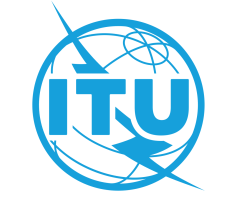The International Telecommunications Union (ITU) is a United Nations specialised agency for information and communications technologies (ICTs). Apart from its 193 member states, ITU’s membership includes some 900 companies, universities, and international and regional organisations. The ITU plays a key role in the implementation and follow-up of the World Summit on the Information Society (WSIS).
ARTIFICIAL INTELLIGENCE
The ITU focuses on the development and the use of AI to ensure a sustainable future. To that end, it convenes intergovernmental and multistakeholder dialogues, and develops standards and frameworks for the use of AI.
The ITU organises the annual AI for Good Summit, an action-oriented, global, and inclusive platform on AI that focuses on leveraging the potential of AI in achieving the sustainable development goals (SDGs). The summit aims to connect innovators in the field of AI with public and private sector decision-makers to develop AI solutions that will be beneficial to everyone.
Previous summits gave rise to numerous ‘AI for Good’ projects, including the launch of ‘AI Commons’, a knowledge hub aimed at scaling AI for Good projects and maximising their impact worldwide.
The ITU also hosts various focus groups on AI-related issues. Examples include:
- The AI for Health Focus Group led by the ITU and the World Health Organization (WHO), dedicated to developing a standardised framework for the evaluation of AI-based methods for health, diagnosis, or treatment decisions.
- The Focus Group on AI for Autonomous and Assisted Driving, which works on developing standards for services and applications enabled by AI systems in autonomous and assisted driving.
- The Focus Group on Environmental Efficiency for Artificial Intelligence and Other Emerging Technologies, which works on developing technical reports and specifications to develop a sustainable approach to AI and other emerging technologies.
The ITU has launched a global AI repository to identify AI related projects, research initiatives, think-tanks and organisations that can accelerate progress towards achieving the SDGs.
INTERNET OF THINGS
The ITU has been mostly active in developing standards for the Internet of Things (IoT). Back in 2012, the ITU published Recommendation ITU-T Y.2060 on the IoT, defining its scope, fundamental characteristics, and high-level requirements.
Aimed at promoting a unified approach at the ITU for the development of technical standards for the IoT on a global scale, the ITU’s Global Standards Initiative on Internet of Things (IoT-GSI) has developed recommendations to enable worldwide service providers to offer the wide range of services expected by this technology. IoT-GSI concluded its activities in July 2015, and a new Study Group 20 (SG20) on IoT and its applications including smart cities and communities was formed. SG20 addresses the standardisation requirements of IoT technologies, with the initial focus being on IoT applications in smart cities and communities (SC&C).
The ITU also facilitates international discussions on the public policy implications of IoT applications, within the framework of events such as the Future Networked Car Symposium.
BLOCKCHAIN
In the area of blockchain, the ITU’s key activities are centred around development of standards for the adoption of blockchain technologies. To that end, the ITU has issued guidance on the adoption of blockchain aimed at supporting potential blockchain adopters by providing them with a clear view of the technology and how it could best be applied. Developed by the Focus Group on Application of Distributed Ledger Technology (DLT), the toolkit contains assessment criteria to help understand the strengths and weaknesses of DLT. Moreover, numerous cases of the use of DLT have been analysed, offering insight into the role of DLT in achieving the SDGs.
5G
The ITU’s activities in the field of 5G include the organisation of intergovernmental and multistakeholder dialogues, and the development and implementation of standards and regulations to ensure that 5G networks are secure, interoperable, and that they operate without interference.
The ITU plays a key role in managing the radio spectrum and developing global standards for 5G networks, devices, and services, within the framework of the so-called IMT-2020 activities. IMT-2020 standards are expected to continue to be developed from 2020 onwards, and 5G trials and commercial activities are already being implemented to assist in evaluating the candidate technologies and frequency bands. Once IMT-2020 specifications are in force, the first full-scale commercial deployments for 5G are expected to be launched.
In 2019, the World Radiocommunications Conference identified additional frequency bands that will facilitate the development of 5G mobile networks and approved new resolutions that pointed to the need of harmonised worldwide bands for international mobile telecommunications.
The ITU has also established a new standard – ITU Y.3172 – that should enable the cost-effective integration of machine learning into 5G and future networks. The standard provides an architectural framework for the introduction of machine learning into mobile networks.
AUGMENTED/VIRTUAL REALITY
The ITU conducts research on – and develops standards in the field of – augmented and virtual reality. It has published a report on advanced immersive audio-visual systems (AIAV), describing the technical background, norms, and standards for AIAV. The report was approved by the ITU-R Study Group for Broadcasting Service (ITU-R Study Group 6), whose scope of work includes the development of norms and standards on audio and video signals.
ARTIFICIAL INTELLIGENCE
- Encourages the use of AI for sustainable development.
INTERNET OF THINGS
- Facilitates the development of standards for the IoT and its applications, including with regard to smart city solutions.
BLOCKCHAIN
- Facilitates the development of standards and guidelines for the adoption of blockchain technologies.
5G
- Develops standards and policies to ensure that 5G networks are secure, stable, reliable, interoperable, safe for human health, and energy efficient.
AUGMENTED/VIRTUAL REALITY
- Facilitates the development of standards for augmented and virtual reality.
